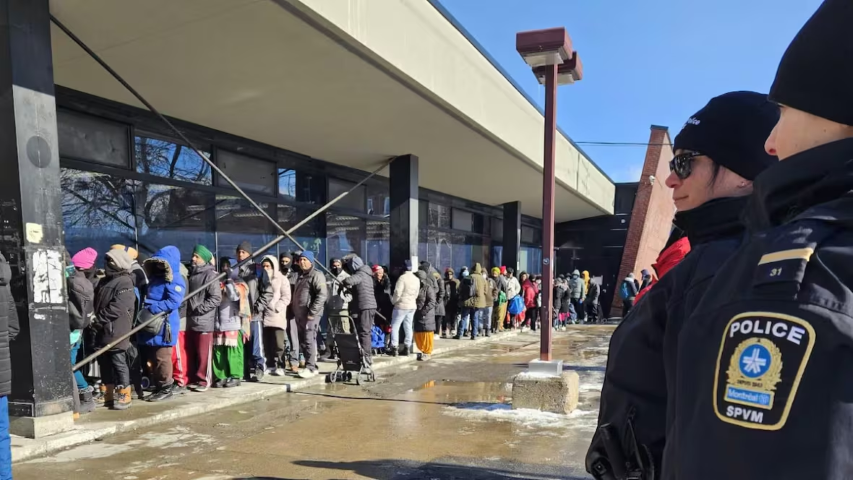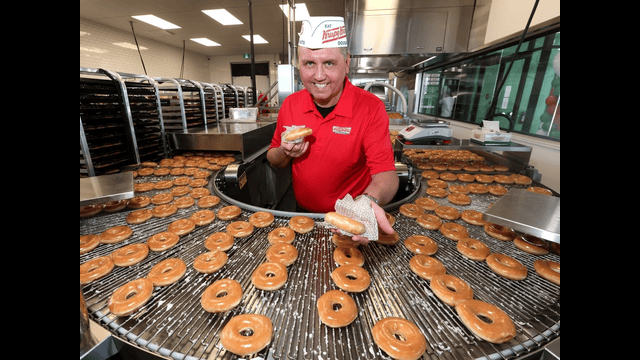
The food bank called police to a food basket giveaway last month to help them manage the growing line of people. (Cuisines et vie collectives Saint-Roch/Facebook )
The Parc-Extension food bank in Montreal faced an unexpected surge in demand last month, with long lines forming as hundreds more people than anticipated showed up for assistance. During a distribution event, tensions rose as individuals attempted to gain priority access, prompting the food bank to seek assistance from emergency services. Consequently, police officers were present at subsequent giveaways to maintain order.
Typically, Cuisines et vie collectives Saint-Roch, a community kitchen doubling as a food bank, serves around 180 families weekly. However, on two Mondays in February, approximately 400 individuals arrived, nearly doubling the usual crowd. Many of these attendees were unregistered, stretching the food bank's resources beyond capacity.
In response to the overwhelming demand, the food bank has decided to cease distributing surplus food to non-members during giveaways. Additionally, they will temporarily suspend new membership registrations for the next two months.
As part of its 2024 budget, Quebec has allocated $30 million in funding for the province's food banks, meeting the request put forth by the Food Banks of Quebec. Véronique Beaulieu-Fowler, the organization's philanthropy director, welcomed the funding boost, stating that it would facilitate better planning for food purchases and distribution amid rising demand.
However, some food security experts argue that food banks, regardless of increased funding, cannot adequately address the underlying issue of food insecurity faced by Canadians, including those in Parc-Extension and elsewhere. Gloria Fernandez, director of Cuisines et vie collectives Saint-Roch, characterizes food banks as a temporary fix that fails to address the root causes of food insecurity, such as poverty. She highlights instances of mothers struggling to feed their children, attributing the problem to delays in obtaining work permits or welfare support for new immigrants.
According to a report by Food Banks Quebec, the organization received an average of 2.6 million monthly requests for assistance in 2023, marking an unprecedented level of demand. Moreover, the number of food baskets distributed monthly has doubled over four years, from 345,000 in 2019 to 682,000 in 2023. Alarmingly, 71% of the food banks supplied by the organization experienced shortages over the past year.
Wade Thorhaug, executive director at Food Secure Canada, criticizes the reliance on food banks as a solution to food insecurity, arguing that they merely mask systemic failures in public policy. He believes that politicians use food banks as a superficial solution to avoid addressing deeper issues of income inequality and affordability.
Similarly, Valerie Tarasuk, a food security researcher from the University of Toronto, expresses concerns over Quebec's significant investment in food banks. She emphasizes that while increased funding may expand food bank operations, it fails to tackle the root causes of food insecurity. Tarasuk advocates for stronger income supports to address rising costs of living, particularly for individuals reliant on limited incomes, social assistance, or low-wage employment.















